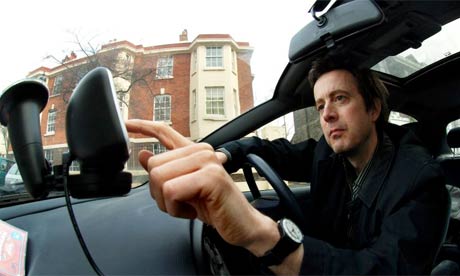
For the Syrian lorry driver whose search for Gibraltar ended in Skegness, the Department of Transport's latest initiative comes too late, but other satnav users can hope for more clarity on the roads as a "satnav summit" aims to ensure highway authorities and mapmakers work closer together.
Norman Baker, the transport minister, will host the summit with councils and satnav manufacturers in response to complaints of vehicles being sent down minor local roads – and occasionally, up paths, alleyways and into streams – by computers relying on outdated or wrongly marked maps.
According to the DfT, it can take months for map updates to make their way from local councils to satnavs. "Out of date directions mean misdirected traffic – a scourge of local communities," said Baker. "It is vital highway authorities, mapping companies and satnav manufacturers work more closely together to provide drivers with accurate, up-to-date information on traffic restrictions such as narrow roads or low bridges.
"This will help prevent huge lorries from being sent down inappropriate roads and ensure motorists are given the best possible directions."
Notable recent blunders include a Welsh soft drinks lorry driver who followed satnav instructions down a narrow alley in the village Bruton, Somerset, wedging his 13-tonne HGV between a house and an estate agents.
In 2008, a BMW driver was charged with careless driving by West Yorkshire police after finally stopping his car inches from the top of a rural cliff, requiring the emergency services to haul the vehicle safely back.
From April, the coalition is devolving powers from Whitehall to local authorities to reclassify roads as they see fit. Under new rules confirmed last month, councils will also be able to signpost roads as unsuitable for heavy vehicles without Whitehall approval. Baker's summit, to be attended by representatives of transport and technology planners, hopes to open the channels for quicker communication between those altering the highways and the satnav firms.

